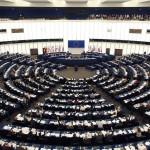The European Commission published the reports and analysis of the progress made in April 2019 by Facebook, Google and Twitter to fight disinformation. The three online platforms are signatories to the Code of Practice against disinformation and have committed to report monthly on measures taken ahead of the European Parliament elections in May 2019.
Main outcome of the reports:
- Google reported on additional measures taken to improve scrutiny of ad placements in the EU, including a breakdown per Member State. It noted the availability of the EU Transparency Report on political advertising and its searchable ad library, including the possibility to use Google Cloud’s BigQuery application programming interface to run customised queries. Google reported on its ongoing efforts to provide transparency around issue-based advertising, but announced that a solution would not be in place before the European elections. Global data was again provided on the removal of a significant number of YouTube channels for violation of its policies on spam, deceptive practices and scams, and impersonation.
- Facebook reported on measures taken in the EU against ads that violated its policies for containing low quality, disruptive, misleading or false content or trying to circumvent its systems. It started enforcing its policy on political and issue-based advertising mid-April and removing non-compliant ads from Facebook and Instagram. The April report also provided information on the opening of its elections operation centre in Dublin, which involves specialists covering all EU Member States and languages. Facebook reported of taking down a coordinated inauthentic behaviour network originating from Russia and focusing on Ukraine. The report did not state whether this network also affected users in the EU. Furthermore, Facebook reported on new access for researchers to its CrowdTangle application programming interface and its URLs Data Set.
- Twitter reported on ads rejected for not complying with its policies on unacceptable business practices and quality ads. It provided information on ads not served because of uncompleted certification process that is obligatory for political campaign advertisers. Twitter reported on a new election integrity policy, prohibiting specific categories of manipulative behaviour and content, such as misleading information about how to participate in the elections and voter intimidation. Twitter provided figures on measures against spam and fake accounts, but did not provide further insights on these measures, i.e. how they relate to activity in the EU.
Background
The monthly reporting cycle builds on the Code of Practice, and is part of the Action Plan against disinformation that the European Union adopted last December to build up capabilities and strengthen cooperation between Member States and EU institutions to proactively address the threats posed by disinformation.
The Code of Practice goes hand-in-hand with the Recommendation included in the election package announced by President Juncker in the 2018 State of the Union Address to ensure free, fair and secure European Parliament elections. The measures include greater transparency in online political advertisements and the possibility to impose sanctions for the illegal use of personal data to deliberately influence the outcome of the European elections. Member States were also advised to set up a national election cooperation network of relevant authorities – such as electoral, cybersecurity, data protection and law enforcement authorities – and to appoint a contact point to participate in a European-level election cooperation network. The first meeting at the European level took place on 21 January 2019, the second one on 27 February, and the third on 4 April.
More information
Access the complete news
Realted factsheet: The EU steps up action against disinformation
April reports on the implementation of the Code of Practice
Communication on tackling online disinformation: a European approach







Leave a Reply